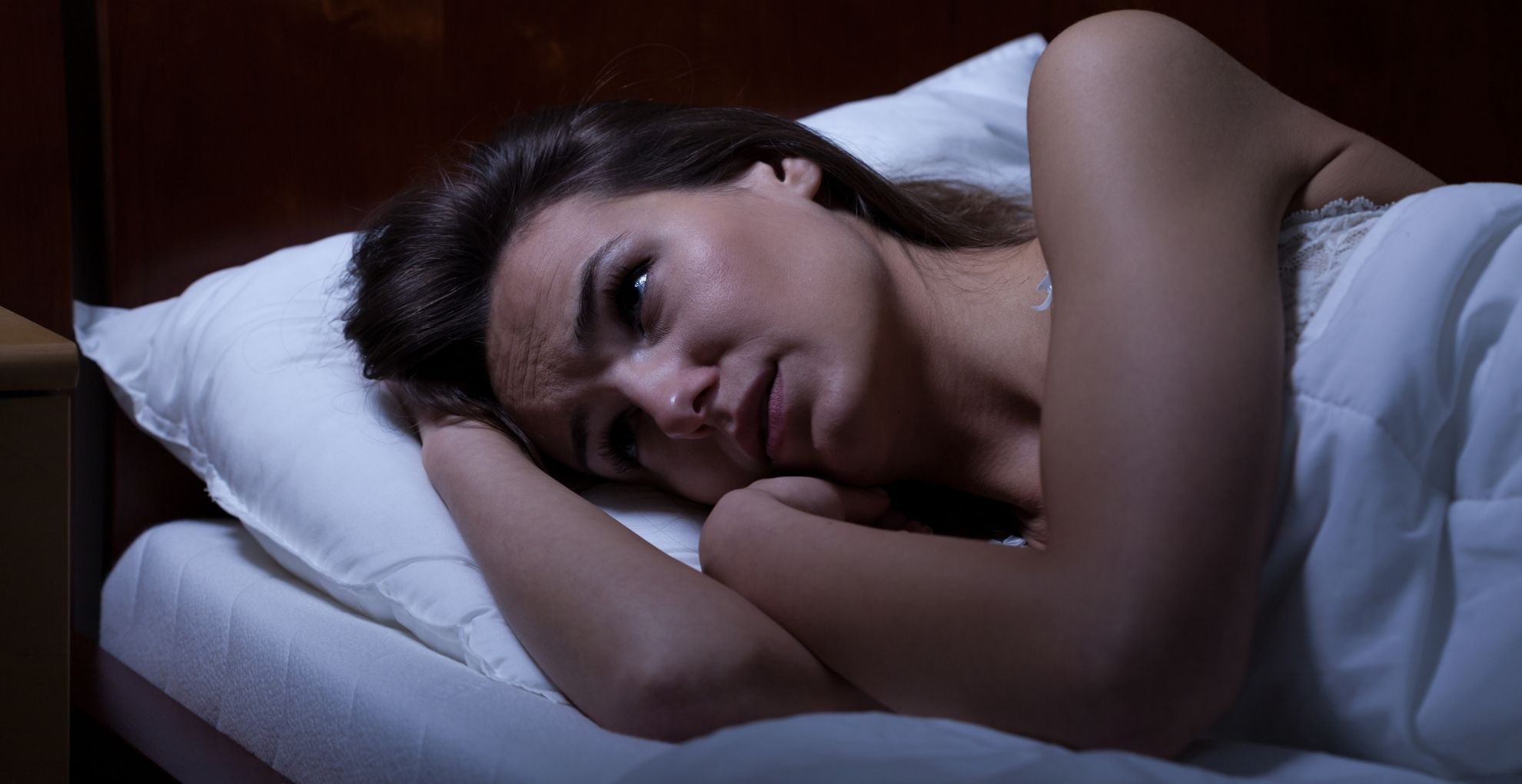You’re exercising regularly. Eating cleaner than ever. Cutting back on sugar, processed food, even those cheeky Friday night wines. You feel like you’re doing all the right things, and yet, the scale won’t budge. Sound familiar?
You’re not alone. This is one of the most common frustrations I hear in clinic.
Despite best efforts, many people find themselves stuck in their weight loss journey. The surprising culprit? Chronic stress and poor sleep quality.
Stress and sleep might seem like side issues, but they’re actually central players when it comes to weight gain and metabolism. The more we learn from clinical nutrition and sleep medicine, the clearer it becomes: to lose weight and maintain weight loss, we have to look beyond calories and gym routines.
So let’s unpack how stress and sleep work together (and against you), how they sabotage even the most dedicated weight loss efforts, and what you can do about it.
Why You’re Doing Everything Right—But Still Not Losing Weight

Let me paint a picture.
You’ve meal prepped your way through the week, hit every workout, even managed to walk more and snack less. But when you step on the scales, nothing’s changed. In fact, you might even feel puffier, more bloated, and more tired than before.
What gives?
This is the moment we zoom out and consider the powerful, but often invisible, forces of stress and sleep deprivation. These two factors alone can derail your entire weight loss program.
We’re learning more and more that it’s not just about what you eat, it’s about what your body does with what you eat. And both stress and poor sleep quality can change how your body stores fat, burns calories, and controls appetite.
How Stress Disrupts Weight Loss Efforts
We’ve all heard of “fight or flight,” but let’s dive into how this plays out biologically.
When you’re stressed, your sympathetic nervous system fires up. Cortisol, the main stress hormone, rises. In the short term, this helps you survive danger. But in today’s world, where threats are more emotional than physical, this stress response gets stuck in “on” mode.
Here’s what that means for your waistline:
- Cortisol increases fat storage, especially abdominal obesity. This is because cortisol signals the body to stockpile energy, especially in the form of fat, just in case it’s needed later.
- Chronic stress (the long-term kind) disrupts your hunger and fullness cues. You might not even feel hungry, but find yourself snacking or stress eating out of habit, comfort, or sheer exhaustion.
- Stress eating often leads to poor food choices, think energy dense, sugary or salty foods that spike blood sugar and drive more fat storage.
This is why, even with a reduced caloric intake and regular physical activity, weight loss effectiveness can stall under chronic stress.
Sleep’s Crucial Role in Weight Regulation
Sleep isn’t just for beauty, it’s for metabolism.
When we get inadequate sleep, particularly short sleep duration (less than 6–7 hours), our metabolism takes a serious hit. Here’s how:
Sleep and Appetite Hormones: Ghrelin & Leptin
Ghrelin, the hunger hormone, increases with less sleep.
Leptin, the fullness hormone, decreases with less sleep.
The result? You’re hungrier, less satisfied, and more likely to overeat. This hormone imbalance increases food intake, especially cravings for sugary and energy dense foods.
Sleep and Energy Metabolism
Poor sleep reduces insulin sensitivity, making it harder for your body to process carbohydrates. This leads to blood sugar spikes, crashes, and more cravings.
Experimental sleep restriction has shown that even healthy adults start to show signs of metabolic disorders after just a few days.
Impact on Decision-Making
Sleep-deprived participants in studies are more likely to choose junk food and skip workouts.
Less sleep impairs the human brain’s prefrontal cortex, the part responsible for discipline, planning, and making good decisions.
Put simply, the less you sleep, the harder it is to resist that muffin, go for that walk, or say no to second helpings.
The Vicious Cycle: Stress, Poor Sleep, and Weight Gain
The real kicker? Stress and sleep don’t just affect weight independently, they feed off each other.

How Stress Disrupts Sleep
Stress hormones like cortisol and adrenaline make it harder to fall asleep and stay asleep. Your brain stays in alert mode, making good sleep almost impossible.
How Poor Sleep Increases Stress
Lack of sleep reduces your resilience to daily challenges so you’re more likely to feel overwhelmed, anxious, and reactive.
Together the interaction of these two factors, stress and sleep, and sleep and stress, fuels weight gain.
High cortisol from stress increases cravings. And poor sleep lowers energy, motivation, and impulse control.
Together, they drive poor food choices, higher daily calorie intake, and reliance on sugar and caffeine to get through the day.
Add to this mix:
Sugar spikes → blood sugar crashes
Caffeine dependence → poor sleep quality
Late-night eating → disrupted sleep cycles
And you’ve got a self-perpetuating loop that drives weight gain and sabotages your weight loss efforts.
How to Break the Cycle: Practical Steps That Work
So how do you break free?
Here are my tried and tested strategies that I use with patients every day:
Reduce Stress
- Mindfulness: Just 5–10 minutes of mindful breathing can lower cortisol. Try belly breathing before meals to activate your parasympathetic nervous system.
- Exercise: Regular physical activity is the most natural way to reduce stress hormones and burn calories.
- Talk it out: Sometimes, chronic stress stems from unresolved emotional issues. Working with a therapist can help free up your nervous system for healing and better weight management.
Improve Sleep Quality
- Set a consistent sleep schedule. Go to bed and wake up at the same time every day, even weekends.
- Avoid screens at least 1 hour before bed. The blue light reduces melatonin, your natural sleep hormone.
- Create a wind-down routine. Dim the lights, stretch, read something relaxing.
- Cool and dark bedroom. Your body naturally increases melatonin in cool, dark environments.
Supportive Nutrition
- Eat foods that nourish your stress response like magnesium-rich leafy greens, B-vitamin rich whole grains, and healthy fats such as avocado, olive oil and seeds.
- Avoid blood sugar spikes by reducing refined carbs and including protein and healthy fats at every meal.
- Include gut-friendly foods to support serotonin production (most of which is made in the gut)—fermented foods, fibre-rich veggies, and resistant starches.
- Reduce alcohol and caffeine, especially in the afternoon and evening, to avoid sleep loss.
When to Seek Help from a Professional
If your weight loss journey has stalled despite addressing diet and exercise…
If you’re tired, wired, and not sleeping well…
If you’re experiencing daytime sleepiness, unintentional weight loss or weight gain, or symptoms of sleep disorders like insomnia or sleep apnea…
It’s time to seek help.
As a naturopath, I can help assess lifestyle factors, hormone imbalances, sleep patterns, and nutritional gaps. Advanced functional tests can pinpoint the specific disruptions in your stress hormone production that affect your sleep and your weight.
Depending on your situation, you might also benefit from seeing our hypnotherapist, especially if stress or trauma are playing a major role.
Sometimes it takes a team to restore balance to your mental and physical health.
Small Changes, Big Impact

Don’t underestimate the power of small changes. One new habit tonight could change everything.
Start by choosing sleep.
Because good sleep isn’t just a luxury, it’s a weight loss intervention. It supports your immune system, stabilises your mood, restores your metabolism and allows your body to burn calories more effectively.
So start with one habit tonight, choose sleep. Dim the lights, put down the phone, and prioritise rest.
One calm night leads to one clearer day, and one clearer day can lead to real, lasting change.
If you’re stuck, exhausted, or feeling discouraged, it’s not because you’re lazy or lacking discipline. It’s because your body is simply overwhelmed.
To get your stress hormones and your sleep helping you to lose weight rather than put it on then contact me today.
Frequently Asked Questions
How do stress and sleep affect weight loss?
Stress elevates cortisol, which encourages fat storage and increases appetite. Poor sleep disrupts appetite hormones, increases cravings, and reduces your ability to make healthy choices. Together, they significantly reduce weight loss effectiveness.
Can stress cause you to lose weight?
Yes. Acute stress can suppress appetite and lead to unintentional weight loss. However, chronic stress more commonly leads to weight gain, especially around the abdomen.
What is the 30/30/30 rule for weight loss?
The 30/30/30 rule suggests starting your day with 30 grams of protein within 30 minutes of waking, combined with 30 minutes of movement. This approach can help reduce hunger hormones and support better body composition and metabolic health.
How to reverse weight loss from stress?
Begin by reducing stress through therapy, mindfulness, and restorative practices. Eat nutrient-dense meals regularly, increase your intake of healthy fats, and ensure adequate sleep duration. Work with a naturopath or dietitian to ensure you’re meeting your body’s needs.

Hayden Keys
Graduating from Western Sydney University in 2005 with a Bachelor of Health Science in Naturopathy, Hayden is a proud member of the Australian Traditional Medicine Society. With over a decade of clinical experience, Hayden established the Happy & Healthy Wellbeing Centre in Miranda in 2009. Read more...




